#portuguese republic
Photo

SIUUUU Cristiano Ronaldo CR7 Goal Celebration Grunge Distress Design T-Shirt
#celebration#cristiano ronaldo cr7 football player#cr7 manchester united#cr7underwear#cristiano ronaldo cr7#cr7#cristiano ronaldo 7#cristiano ronaldo#cristiano#distress#national football team#football#world portugal 2022#portuguese republic#classic tshirt#tshirt design#tshirts#tshirt
2 notes
·
View notes
Text
#poll#polls#language#languages#learning#bulgaria#bulgarian#malta#maltese#lithuania#lithuanian#portugal#portuguese#spain#spanish#czech republic#czech#czechia#france#french#greece#greek#romania#romanian#slovakia#slovak#poland#polish#netherlands#dutch
16 notes
·
View notes
Text
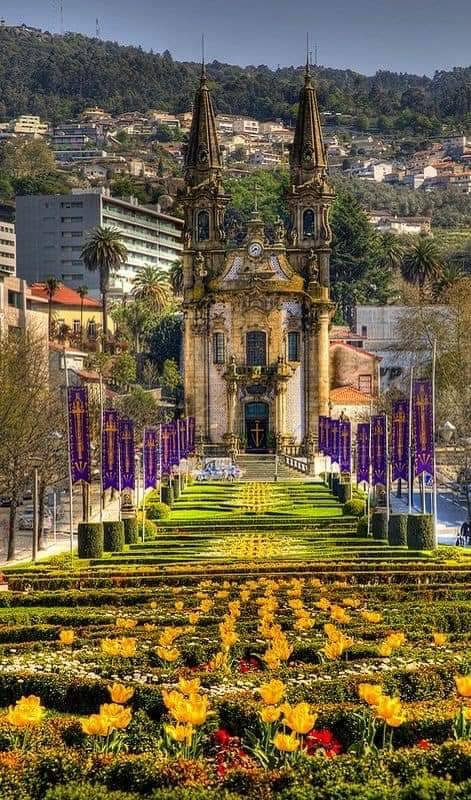
View of the gardens of Largo Republica do Brasil in Guimaraes, PORTUGAL
#beautiful view#gardens#largo#republica do brasil#republica de brasil#republic of brazil#guimaraes#portuguese#português#portugues#portugal#europe#europa
52 notes
·
View notes
Note
My turn for some angst 😌 @cajousque on twitter made a comic where flowers begin to grow on Spain for every soul that died in the spanish civil war. Plus your headcanon that when a tan die and they can't recover their body it just spawns again but younger
Imagine in the 19th century Afonso is asked by the newly turned republic Brazil government to come. He naturally rejects but they keep insisting until he decides to go and see what the hell this brat wants. When he arrives he's shocked to find Luciano looking like a young boy, like the one he used to care for, being kept in secret by the government and Rio de Janeiro being the one in charge until he grows back. Afonso desperately asks where is his old body and is taken to a garden, Rio shows him a place where passion fruit flowers where growing and tells him Luciano is buried underneath there
Rio explains that after the Paraguayan war those flowers began to grow and infest his body. No doctor could understand what was going on until he decides to seek a shaman, the shaman says each one of those flowers were a soul he took from the war. His condition and death was kept in secret from the public and Afonso being there was one of Luciano's last wishes
"He wanted to see you one last time" Rio says "but you kept refusing our request. When we told him he just... laughed, saying 'what a stubborn old mule, like always'"
This one is so good!!! My God 😭

Afonso's felt crushed by guilt. If he hadn't been so angry and proud... if only he had come a little sooner...
"Nininho..."
He could could feel Rio angrily staring at him. Too little, too late. Afonso knew what he was thinking.
"Was he alone?" he asked. There was no point asking if he had suffered, Afonso knew very well how it felt.
"Goverment officials were here," Rio said matter of factly.
Afonso nodded and stared silently at the flowers, shinning so beautifully in the sun.
The little boy (Afonso couldn't bring himself to think of him as Luciano... not yet), ran towards them with a toy, hopeful they would play in the garden with him, but Rio grabbed his hand.
"You should leave," Rio said. "The country is at a very delicate stage right now. We need to find our own path and our government... they don't want you to influence him anymore."
Rio was staring at the little boy, who smiled at him before asking to be held. Afonso glanced at him just for a brief second before facing the flowers again.
"Is that why Arthur and Alfred are coming over?"
If Rio was surprised that he knew, he didn't show it, nor did he answer. There was no need.
It wouldn't work, not in the way the humans hoped. A nation's rebirth didn't undo their past or turn them into different people, even if their reborn self was raised by another more suitable and sucessful Nation. Many had tried before.
"I'll leave first thing in the morning," Afonso said, his back still turned. "But... Can I stay here tonight?"
Rio stared at him for what seemed like an eternity before agreeing and taking the young boy way with him inside the house.
Afonso stood before the passion flowers as the sun went down and night fell. He didn't touch the flowers, he wouldn't dare. Instead he let his tears fall silently to the ground.
"I thought you wanted to shove your sucess in my face, that's why I said I didn't want to come here. You said you didn't want to see me again," Afonso muttered, tears streaming down his face. "I've let you down, Nininho. I'm sorry."
After several hours, Afonso's legs were too tired and he kneeled on the ground. His knees hurt, but he didn't care. This was his penance, as worthless as it was.
The sound of steps startled him and he turned around. The boy... Luciano was there staring at him with wide brown eyes as if he didn't want to scare him away.
Afonso stared at the small child still wearing his pajamas who looked so painfully familiar.
"You shouldn't be here," he said, wiping his tears. "It's late. You should be in bed."
The little boy stared back at him, his little hands clenched over his shirt. "I can't sleep. I had a bad dream."
And before Afonso could react, the little boy threw himself into his arms and hugged him tight.
Afonso fell on his ass, holdind the child instinctively against his chest. "Luci!"
"Why are you crying? I don't want you to cry," Luciano said, wrapping his hands around Afonso's neck and laying his head against his shoulder. "Papai..."
It was so familiar. So painfully familar. Afonso's eyes were burning as new tears fell.
How long at it been since he had held him like this?
"I'm sorry, Nininho... I'm so, so, sorry."
#this got so long but I couldn't help myself#i loved writting this#I figured from what i've read that the newly established Brazilian Republic wanted to establish their own identity#and that meant breaking away from Portuguese influence#that's why I thought the new goverment wouldn't want Afonso around the newly reborn Luciano#please let me know what you think#hetalia#aph portugal#hws portugal#lh brazil#hws brazil
19 notes
·
View notes
Text
Hey native spanish speakers, please help a curious brazilian out:
I know there are different dialects but, i'm asking because despite being very similar to eu portuguese and other colonized versions, brazilian portuguese still feels different enough that it could be considered a different language depending on who you ask, and I want to know whether other language speakers feel the same way and how much being an isolated country linguistically (it's the only portuguese speaker this side of the ocean) affects my worldview
#linguistics#latin america#portuguese#spanish#multilingual#colonization#brazil#colombia#argentina#chile#mexico#dominican republic#puerto rico#cuba#paraguay#bolivia#equador#venezuela#uruguai#peru#dont remember others theres just too many they're escaping me#south america#central america#forgot to tag spain oops
3 notes
·
View notes
Photo


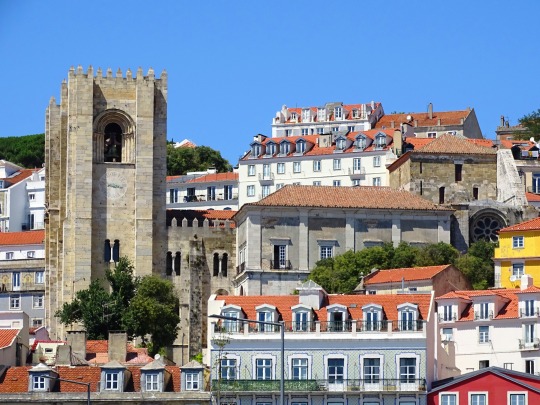





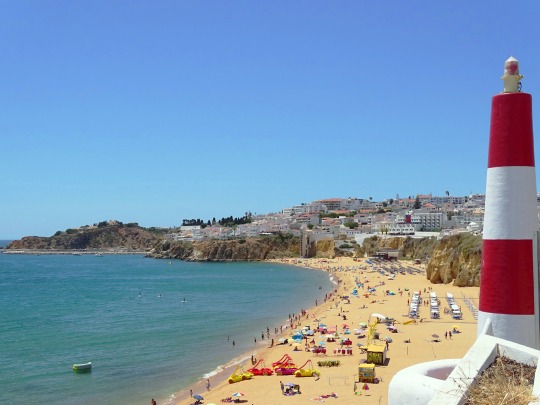
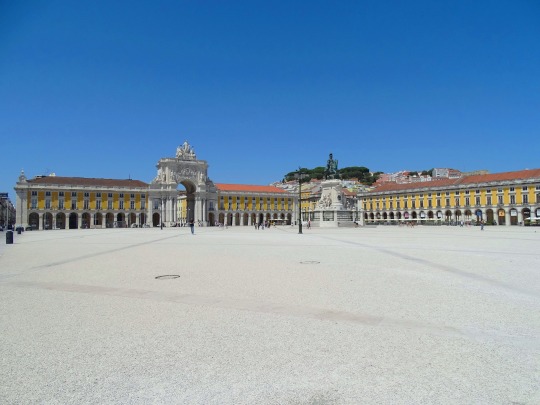
In a revolution in Portugal the monarchy was overthrown and a republic was declared on October 5, 1910.
Portugal Republic Day
Portugal’s Republic Day is celebrated on October 5 every year and is also known as ‘Implantation of the Republic’ in Portugal. This important day marks the overthrow of the monarchy, the House of Braganca, in 1910. The monarchy had been in power since the 11th century and was replaced by a republican form of government in a bloodless revolution. It also brought about civil and religious liberties. It is a public holiday with schools, state offices, and some restaurants being closed. Like other public holidays in Portugal, Republic Day is not moved to a weekday if it falls on a weekend.
History of Portugal Republic Day
Portugal’s Republic Day commemorates the deposition of the centuries-old Portuguese monarchy and the establishment of the First Portuguese Republic. It was the result of a coup led by the “Portuguese Republican Party.”
By 1910, the Portuguese Kingdom was in the middle of a crisis with people increasingly resenting the royal family due to the 1890 British Ultimatum which demanded the retreat of the Portuguese military forces from the territory between the colonies of Angola and Mozambique, the royal family’s expenses, the assassination of the King and his heir, transforming religious and social views, instability of political parties, Joao Franco’s dictatorship, and the regime’s inability to adapt to modern times. This national anger helped proponents of the Republican Party to take advantage of the situation. The party skillfully presented itself as the only one capable of returning the country to its original glorious status and advancing its progress.
The military was reluctant to fight the nearly two thousand soldiers and sailors that rebelled between October 3 and 4, and so the Republic was proclaimed the next day from the Lisbon City Hall. A provisional government led by Teófilo Braga led the country till the Constitution was approved, marking the beginning of the First Republic. National symbols like the national anthem and the flag were changed, along with some changes in civil and religious liberties.
The deposed King Manuel II departed from Ericeira and lived out the rest of his days in exile.
At the time, Portugal was worried about being recognized by other countries as most European states were monarchies. But soon enough, through skillful diplomacy by the Foreign Affairs Minister, the country was officially recognized by the United Kingdom, France, China, Spain, Italy, Russia, and others.
Portugal Republic Day timeline
1143 Treaty of Zamora
Afonso Henriques — also known as Afonso I —is proclaimed the First King of Portugal.
1500 The Discovery of Brazil
Pedro Álvares Cabral sets sail seeking to reach India but a storm changes his course and he lands in South America.
1908 Regicide
King Charles and his son and heir Prince Luís Filipe of Bragança are assassinated in Lisbon.
1910 The Republic Party Takes Over
The monarchy is abolished and a republican government is formed.
Portugal Republic Day FAQs
What languages are spoken in Portugal?
Portuguese is the common language of the country and is the most widely spoken. English is the second most spoken language as Portugal regularly attracts international visitors from the United States, U.K. as well as the rest of Europe.
Is Portugal expensive to visit?
Portugal is among the least expensive holiday destinations in Western Europe and will set you back around 68 to 115 euros per person for each day. It’s a great holiday place if you’re looking to make a trip on a budget as it’s much cheaper than many European options.
What food is Portugal known for?
Seafood and pork are popular foods in Portugal. Some of the must-have dishes are bacalhau or salted cod, custard tart, Iberian black pork, duck rice, grilled sardines, steak sandwich, and seafood stew just to list a few. Did you know tempura was actually invented by the Portuguese? Another reason to love this place!
How to Observe Portugal Republic Day
Visit Portugal
Immerse yourself in the culture
Throw a party
Visit Portugal to celebrate its Republic Day and honor the people who struggled to bring about a revolution. Enjoy the celebrations at the Lisbon City Hall, wave the flag, go sightseeing and join in on the fun.
Bring Portugal to you if you can’t visit the country by immersing yourself in its vibrant culture. Read some Portuguese literature, watch some movies and cook some delicious traditional Portuguese food.
Show your national pride by throwing a party to celebrate Republic Day. Light up the sky with some fireworks and remark on the years of effort and struggle that have made the nation it is today.
5 Facts About Portugal That Will Blow Your Mind
It’s amongst the oldest nations in Europe
It’s one of the most peaceful countries
England is its oldest friend
One of the worst disasters
First place to ban life imprisonment
It’s been constantly inhabited since prehistoric times by the Celts, Carthaginians, and Romans just to name a few.
It has a low crime rate, high standard of living, and a high average life expectancy too.
Portugal signed the “Treaty of Windsor” with England in 1386 — which is probably the longest-running alliance between modern nations.
An extremely violent earthquake of a magnitude of 8.5 to nine befell Lisbon in 1755, causing a widespread fire and a huge tsunami that nearly wiped out the city.
It abolished life imprisonment in 1884 and no one has been executed for a crime since 1846.
Why Portugal Republic Day is Important
It marks the overthrowing of the monarchy
National pride
It was a bloodless revolution
The people of Portugal were growing increasingly resentful of the monarchy for various reasons. The revolution finally put an end to it and paved the way for a different form of government.
It’s a great day to show off your pride in being Portuguese. Take this day to immerse yourself in your culture and learn more about the many events that have made Portugal the great nation it is today.
It’s commendable to note that unlike many other coups and revolutions in the region, the event involved no bloodshed. This serves as an important lesson even in today’s day and age that not all revolutions need casualties.
Source
#revolution#republic#declared#5 October 1910#anniversary#Lisbon#Lisboa#Lisbon Cathedral#Portuguese history#Albufeira#summer 2021#Portugal Republic Day#Azulejo#Belém Tower#Atlantic Ocean#Ourique#landscape#cityscape#seascape#Rossio#D. Maria II National Theatre#Igreja de São Paulo#Praça do Comércio#tourist attraction#original photography
2 notes
·
View notes
Text

0 notes
Text
The Miracle of the Sun
Enough with Friday the 13th conspiracy theories. Because there was a supernatural occurrence —a divine one— which occurred in Fátima, Portugal exactly 106 years ago today, on 13 October 1917. And it’s far more important to discuss. It was a prophesied miracle that was witnessed by thousands upon thousands, including skeptics and atheists, many of whom converted to Catholicism upon witnessing the…

View On WordPress
#First Portuguese Republic#Friday the 13th#Miracle of the Sun#Nuestra Señora de Fátima#Portugal#Virgin Mary
1 note
·
View note
Text
1915 – The May 14 Revolt


The May 14 Revolt (1915) was a politico-military uprising led by Álvaro de Castro and General Sá Cardoso which started in Lisbon, Portugal, with the objective of taking power from the dictatorship of General Pimenta de Castro during the Portuguese First Republic.
#May.14.1915#May 14 Revolt#Alfredo de Sá Cardoso#Álvaro de Castro#Carbonária#First Portuguese Republic#Lisbon#Portugal#history today
1 note
·
View note
Text
Antiga Ordem x Nova Ordem
Antigas crenças x Antigas Crenças
#agenda 2030#2030싱글#anos 80#80s#telefone#celular#correios#economia#política#governo federal#vizinho#republic of brazil#brazilian politics#brasil#portuguese#texto propio#texto#opinião#imagenes con texto
1 note
·
View note
Photo

Portugal Gonçalo Ramos Qatar 2022 World Cup T-Shirt
#benfica#goals#goal#world portugal 2022#portugal qatar 2022#portugal flag#portugal#portugal soccer#portuguese republic#portuguese#ramos#gonçalo ramos#gr 88#portugal vs switzerland#classic tshirt#tshirt design#tshirts#tshirt
1 note
·
View note
Note
(hey, what fruit post?)
OK so. Important information in order to provide context: I’m Brazilian, born, raised and currently living in Brazil. With that in mind…
In 2019, I saw a post where OP was talking about picking berries as a kid and it got me thinking about the fruit *I* picked as a kid myself. So I made a random post about them that originally looked like this:

Now, both this fruit and this tree have their own names in Portuguese: pitanga and jabuticabeira. But I thought that, since English is the lingua franca of this website and all, maybe it would be easier for people to know what I was talking about if I used the English names for these plants. So I looked it up and got the names Brazilian (or Surinam) cherries and Brazilian grapetree. And I used them.
Turns out, these fruit aren’t, indeed, that well-known outside of Brazil and the post breached containment, so to speak. And it reached people that didn’t know that was how they were called in English and didn’t care to look it up. To them, I was someone spouting fake information online, and you know how people react to THAT. So people started calling me:
• Stupid for thinking those fruits are actual cherries and grapes (not what I said)
• Stupid for not knowing grapes don’t grow on trees (not what I said)
• A stupid gringo for making up names for things that already had names in Portuguese (not what I am and not what I did)
• A few other assorted insults such as an “European colonizer” (not what I am) and having my country called a “banana republic” (not what it is but even if it was, WHOSE fault would that be, huh?)
And this has been going on for FIVE YEARS. I’ve changed the original text to disclaimers that I DO know that’s not what they’re called in Portuguese and I DO know they’re not actual cherries and grapes to try and keep people from calling me stupid over this fucking post several times but they just don’t ever check if someone has already “corrected” me. Lately, I thought people had finally gotten over it but it picked up pace AGAIN today and people are already going “Uhhh but these aren’t grapes???” and I know it’s just a matter of time until the insults start again and I’m sick of it so now that Tumblr allows us to make posts unrebloggable I’m taking the fruit out back and shooting them all like Old Yeller.
118 notes
·
View notes
Photo
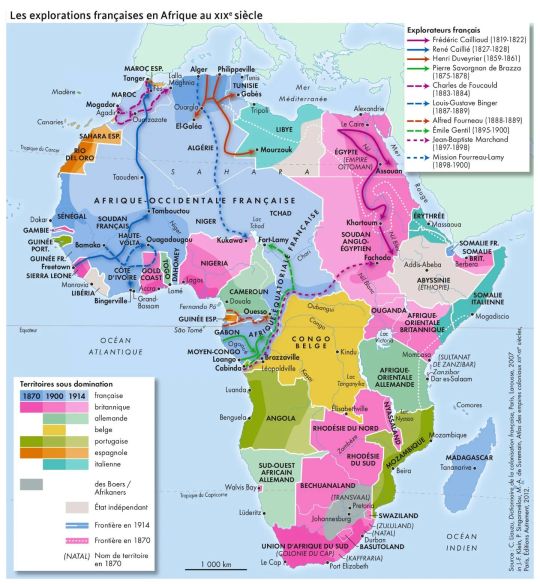
French explorations in Africa in the 19th century
« Nouvel atlas de l'histoire de France », Autrement, 2016
by cartesdhistoire
In the 19th century, a vast movement of exploration of lands unknown to Europeans developed, supported by scientific institutions. The figure of the explorer became familiar to the public, and their stories contributed to the creation of a specific imagination, filled with exoticism and adventure. Perhaps the most evocative name is that of René Caillie, the first Westerner to reach Timbuktu. Another remarkable figure is Pierre Savorgnan de Brazza, a French naval officer born in Italy who explored the Congo (1874-1882).
From the 1880s to the 1890s, European expansion accelerated from sometimes ancient coastal footholds, such as French and British forts in West Africa or Portuguese ones in Angola. The Berlin Conference (1884-1885) set the rules, enforcing effective occupation of land to colonize it. It also guaranteed freedom of movement and trade on major rivers (Niger, Congo). The drawing of colonial boundaries, often complex to define on the ground in densely populated areas, and the colored plaques on the maps should not mask the fact that the appropriation of the territory was progressive and often very loose.
During the conquest, the military consisted of the powers in place (sometimes themselves of European origin, as in the Boer republics of Orange and Transvaal, which eventually became British in 1902). Treaties to share the territories multiplied, which did not avoid crises like the one at Fashoda in 1898, where the French and British clashed for control of the Upper Nile—and more broadly for the completion of their expansion projects: the Dakar-Djibouti link for the French, and the Cairo-to-Cape Town axis for the British. This led to the extension of British influence over the entire Nile basin.
85 notes
·
View notes
Text
Asian slaves, indigenous Americans, and identity in colonial era Mexico
The Spanish Philippines had a diverse slave population for local labor and export, including Filipino Indians [i.e. natives; indios], Muslim war captives (moros), and foreign slaves from as far away as Portuguese India.
… Upon their arrival, chino slaves [i.e. any Asian slave, not just Chinese] were absorbed by the urban economy of Mexico City, where they mainly worked as domestic servants or in textile mills (obrajes) … For their part, working in the city provided chinos with some possibilities for manumission. Chinos in domestic service were especially apt to embrace the limited opportunities available to them and to experience some social mobility. In the obrajes, chinos had few of the freedoms given to domestic servants, but they did benefit from government oversight of the industry. During official visits, chino slaves appealed for protection from overt exploitation by claiming that they were Indians (even if they were from Portuguese India). Remarkably, visiting inspectors listened to their complaints, and they often responded by liberating individual chinos under the assumption that they were indeed native vassals and could thus not be held in bondage. The overall experience of chinos in the viceroyal capital confirms the benefits of living close to the center of colonial power.
The presence of free indigenous immigrants from the Spanish Philippines in Mexico reinforced the idea that all chinos were Indians. The complex governing structure of colonial Mexico involved two republics or political communities (the república de indios and the república de españoles); this organization separated the indigenous majority from everyone else to facilitate the collection of tribute and the ministry of the Catholic Church … [N]ative immigrants from the Philippines purposely sought to confirm their membership in the Republic because corporate status provided personal advantages. They asked to be tallied in tribute rolls in Mexico to benefit from concomitant privileges, such as trading rights and legal representation through the General Indian Court. At the same time, free Filipinos were frequently confused with chino slaves - a situation that had serious consequences for Filipinos' relations with colonial institutions and enslaved individuals. Some immigrants resented having their indigenous identity questioned and sought to maintain a sense of their Indian-ness by keeping their distance from chino slaves. The majority, however, expressed solidarity with chino slaves. Filipino artisans, for example, took on chino slaves as apprentices and taught them marketable skills. Similarly, Filipino traders incorporated chinos into their own credit networks to facilitate self-purchase.
Individual chinos who were manumitted also embraced an Indian identity, regardless of whether they were from Goa, Macau, or other places in South and Southeast Asia. In this way, chinos challenged official attempts to define them solely as former slaves. Instead, they sought to join the free republic. The possibility for this kind of social integration caused widespread concern among slave owners. To defend their property rights, masters started to brand chino slaves on the face, rather than on the chest or arm as they did with Africans, in order to dissuade them from fleeing and "passing" as free Indians. This horrifying development shows that Indian communities welcomed runaway chino slaves and, by extension, that slave owners sought visible markers of their slaves' status.
Excerpt from the Introduction to “Asian Slaves in Colonial Mexico: From Chinos to Indians” (2014) by Tatiana Seijas
113 notes
·
View notes
Text
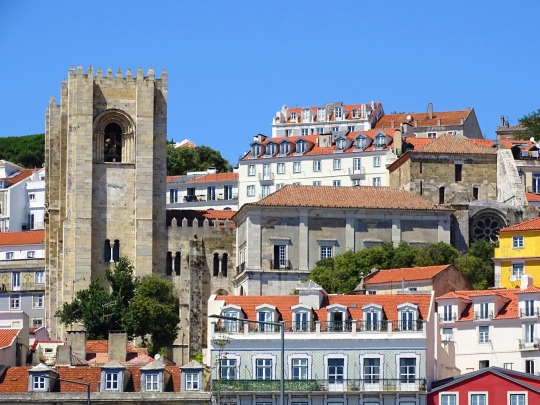


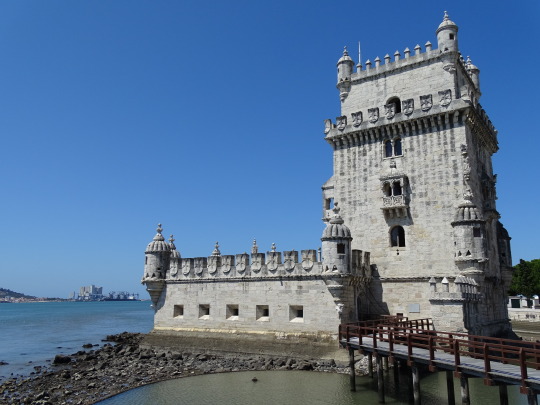
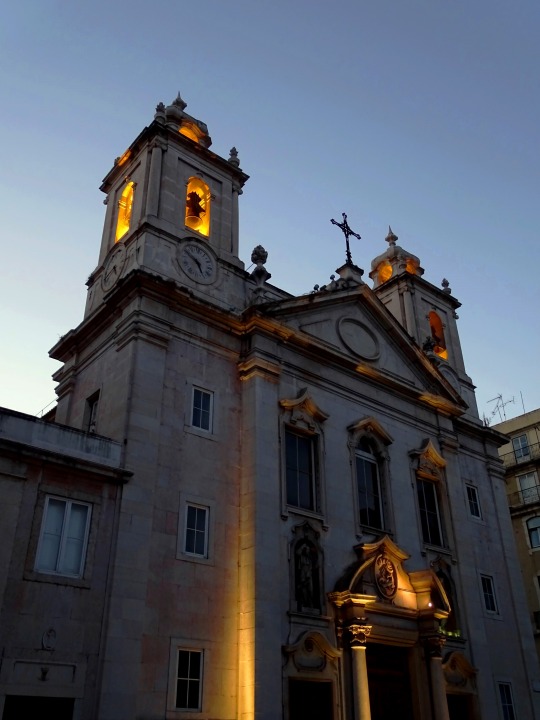
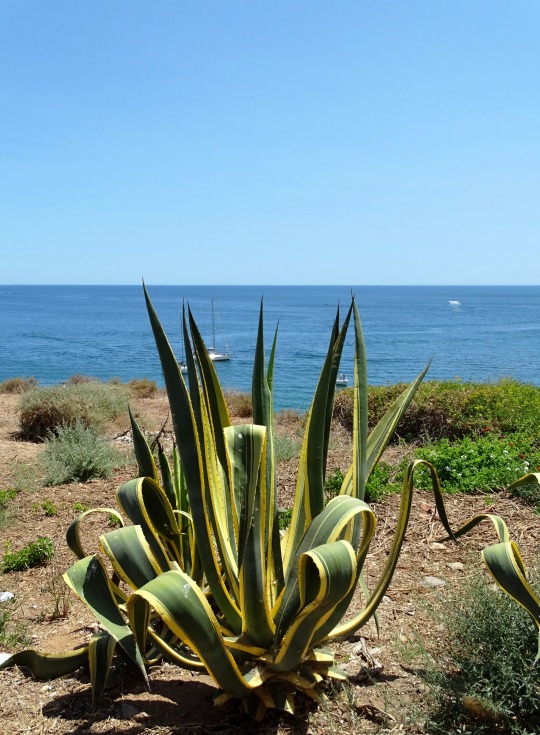
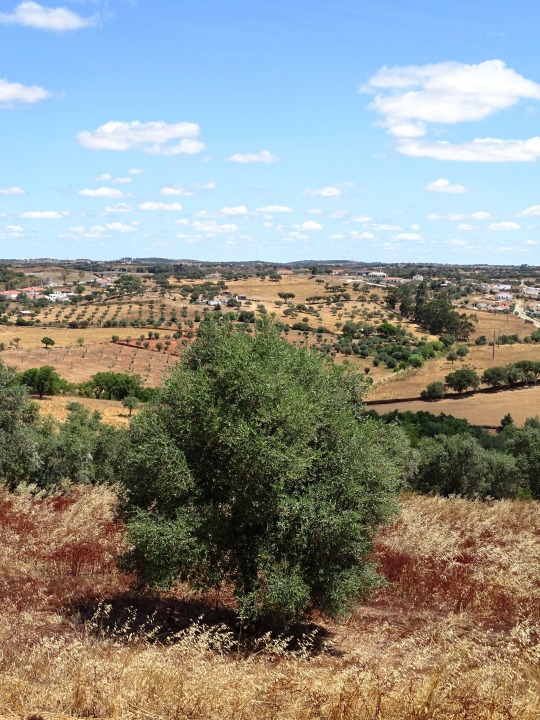

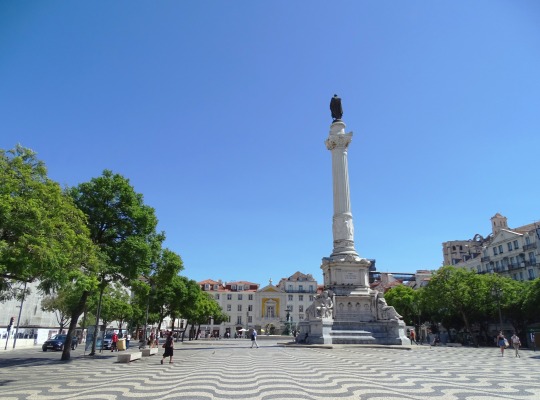
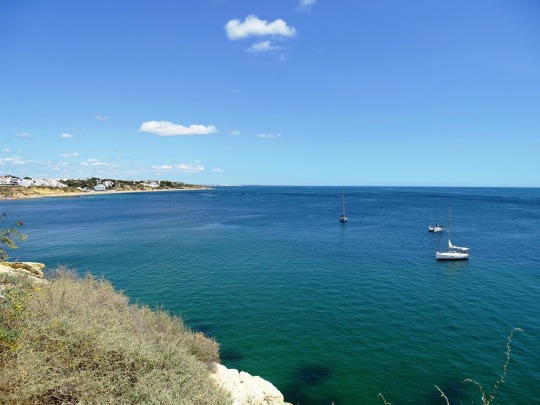

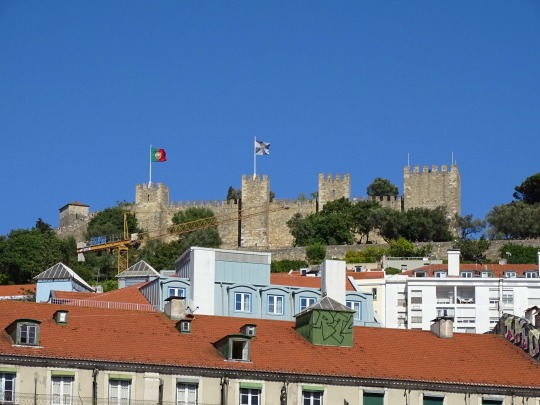
In a revolution in Portugal the monarchy was overthrown and a republic was declared on October 5, 1910.
Portugal Republic Day
Portugal’s Republic Day is celebrated on October 5 every year and is also known as ‘Implantation of the Republic’ in Portugal. This important day marks the overthrow of the monarchy, the House of Braganca, in 1910. The monarchy had been in power since the 11th century and was replaced by a republican form of government in a bloodless revolution. It also brought about civil and religious liberties. It is a public holiday with schools, state offices, and some restaurants being closed. Like other public holidays in Portugal, Republic Day is not moved to a weekday if it falls on a weekend.
History of Portugal Republic Day
Portugal’s Republic Day commemorates the deposition of the centuries-old Portuguese monarchy and the establishment of the First Portuguese Republic. It was the result of a coup led by the “Portuguese Republican Party.”
By 1910, the Portuguese Kingdom was in the middle of a crisis with people increasingly resenting the royal family due to the 1890 British Ultimatum which demanded the retreat of the Portuguese military forces from the territory between the colonies of Angola and Mozambique, the royal family’s expenses, the assassination of the King and his heir, transforming religious and social views, instability of political parties, Joao Franco’s dictatorship, and the regime’s inability to adapt to modern times. This national anger helped proponents of the Republican Party to take advantage of the situation. The party skillfully presented itself as the only one capable of returning the country to its original glorious status and advancing its progress.
The military was reluctant to fight the nearly two thousand soldiers and sailors that rebelled between October 3 and 4, and so the Republic was proclaimed the next day from the Lisbon City Hall. A provisional government led by Teófilo Braga led the country till the Constitution was approved, marking the beginning of the First Republic. National symbols like the national anthem and the flag were changed, along with some changes in civil and religious liberties.
The deposed King Manuel II departed from Ericeira and lived out the rest of his days in exile. At the time, Portugal was worried about being recognized by other countries as most European states were monarchies. But soon enough, through skillful diplomacy by the Foreign Affairs Minister, the country was officially recognized by the United Kingdom, France, China, Spain, Italy, Russia, and others.
Portugal Republic Day timeline
1143 Treaty of Zamora
Afonso Henriques — also known as Afonso I —is proclaimed the First King of Portugal.
1500 The Discovery of Brazil
Pedro Álvares Cabral sets sail seeking to reach India but a storm changes his course and he lands in South America.
1908 Regicide
King Charles and his son and heir Prince Luís Filipe of Bragança are assassinated in Lisbon.
1910 The Republic Party Takes Over
The monarchy is abolished and a republican government is formed.
Portugal Republic Day FAQs
What languages are spoken in Portugal?
Portuguese is the common language of the country and is the most widely spoken. English is the second most spoken language as Portugal regularly attracts international visitors from the United States, U.K. as well as the rest of Europe.
Is Portugal expensive to visit?
Portugal is among the least expensive holiday destinations in Western Europe and will set you back around 68 to 115 euros per person for each day. It’s a great holiday place if you’re looking to make a trip on a budget as it’s much cheaper than many European options.
What food is Portugal known for?
Seafood and pork are popular foods in Portugal. Some of the must-have dishes are bacalhau or salted cod, custard tart, Iberian black pork, duck rice, grilled sardines, steak sandwich, and seafood stew just to list a few. Did you know tempura was actually invented by the Portuguese? Another reason to love this place!
How to Observe Portugal Republic Day
Visit Portugal
Immerse yourself in the culture
Throw a party
Visit Portugal to celebrate its Republic Day and honor the people who struggled to bring about a revolution. Enjoy the celebrations at the Lisbon City Hall, wave the flag, go sightseeing and join in on the fun.
Bring Portugal to you if you can’t visit the country by immersing yourself in its vibrant culture. Read some Portuguese literature, watch some movies and cook some delicious traditional Portuguese food.
Show your national pride by throwing a party to celebrate Republic Day. Light up the sky with some fireworks and remark on the years of effort and struggle that have made the nation it is today.
5 Facts About Portugal That Will Blow Your Mind
It’s amongst the oldest nations in Europe
It’s one of the most peaceful countries
England is its oldest friend
One of the worst disasters
First place to ban life imprisonment
It’s been constantly inhabited since prehistoric times by the Celts, Carthaginians, and Romans just to name a few.
It has a low crime rate, high standard of living, and a high average life expectancy too.
Portugal signed the “Treaty of Windsor” with England in 1386 — which is probably the longest-running alliance between modern nations.
An extremely violent earthquake of a magnitude of 8.5 to nine befell Lisbon in 1755, causing a widespread fire and a huge tsunami that nearly wiped out the city.
It abolished life imprisonment in 1884 and no one has been executed for a crime since 1846.
Why Portugal Republic Day is Important
It marks the overthrowing of the monarchy
National pride
It was a bloodless revolution
The people of Portugal were growing increasingly resentful of the monarchy for various reasons. The revolution finally put an end to it and paved the way for a different form of government.
It’s a great day to show off your pride in being Portuguese. Take this day to immerse yourself in your culture and learn more about the many events that have made Portugal the great nation it is today.
It’s commendable to note that unlike many other coups and revolutions in the region, the event involved no bloodshed. This serves as an important lesson even in today’s day and age that not all revolutions need casualties.
Source
#revolution#republic#declared#5 October 1910#anniversary#Lisbon#Lisboa#Lisbon Cathedral#Portuguese history#Albufeira#summer 2021#Portugal Republic Day#Azulejo#Belém Tower#Atlantic Ocean#Ourique#landscape#cityscape#seascape#Rossio#D. Maria II National Theatre#Igreja de São Paulo#tourist attraction#original photography#São Jorge Castle
0 notes
Text
Yan!Julius Caesar Random Headcanons
❝ 📜— lady l: I love writing these random headcanons and if you guys want more historical characters feel free to send them! If you're curious about how he is yandere, I posted a general headcanon of him, which you can read by clicking here. Here are historical facts and some additional ones from my head. I hope you like it and good reading!! ❤️
❝tw: not entirely historically accurate and perhaps murder (?).

Julius Caesar was born in 100 BC and became an important Roman military and political leader. His conquest of Gaul (present-day France) and his successful campaigns contributed to his rise to power.
In 44 BC, Julius Caesar was appointed dictator for life by the Roman Senate. This move sparked concern among senators, leading to a plot that resulted in his assassination on March 15, 44 BC, known as the "Ides of March". The man did not last long as a dictator.
Julius Caesar played an important role in reforming the Roman calendar. The Julian calendar, introduced in 45 BC, was an adaptation of the lunar calendar to the solar year, forming the basis of the modern Gregorian calendar. So much so that the month of July is in his honor.
Julius Caesar formed a political alliance known as the First Triumvirate with Pompey and Crassus. They shared power and influence to advance their political and personal agendas. It didn't last long because soon they started fighting each other for power. A yandere obsessed with power, I dare say.
Julius Caesar is known for writing "Commentaries on the War in Gaul", also called as Commentarii de Bello Gallico, a series of accounts of his campaigns in the region. These writings offer valuable information about military tactics and life at that time. A great military commander and also a great fanfic writer.
There are reports that say that when he was 30 years old, he passed in front of a statue of Alexander the Great and wept because he had reached the same age and had not conquered as much as the Macedonian King. An inferiority complex, I would say.
The title "Caesar" became a dynastic name used by many Roman leaders after Julius Caesar. The first Roman Emperor, Augustus, was his nephew and adopted heir, and he adopted the title "Caesar" as part of his name. A curious fact is that many Brazilians have Caesar (César in portuguese) in their name.
In addition to his military achievements, Julius Caesar had a deep taste for literature and writing. He frequently exchanged letters and discussed poetry with various intellectuals of the day. A true cultured man and a renaissance ahead of time.
The death of Julius Caesar was one of the key events that contributed to the fall of the Roman Republic and the subsequent rise of the Roman Empire. His legacy has had a lasting impact on history and politics. Our man is credited as one of the greatest military commanders of all time.
Rumor has it that Julius Caesar had a secret superstition of avoiding black cats, believing them to bring bad luck. This contrasted with his image as a fearless leader. Poor kitty, so many powerful men were afraid of cats.
#history#yandere historical characters#yandere julius caesar#yandere julius caesar headcanons#julius caesar#headcanons#yandere headcanons#yandere history
147 notes
·
View notes